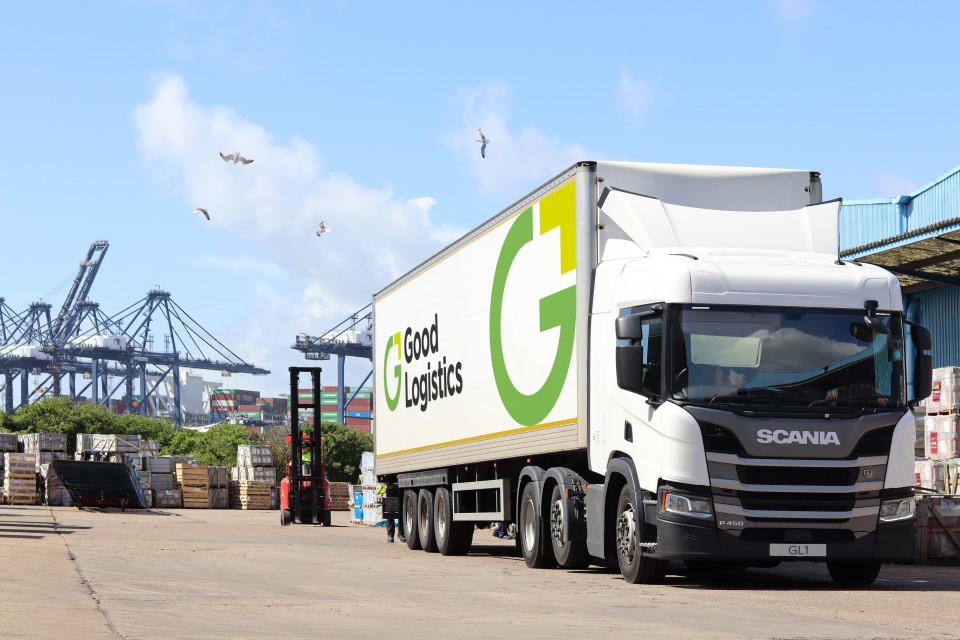THE BUSINESS OF INTERNATIONAL TRADE
THE BUSINESS OF INTERNATIONAL TRADE

The Electronic Trade Documents Act 2023, which received royal assent on July 20, 2023, and comes into effect in September, is the most significant change in international trade law in this country in generations. In the UK, the Act gives electronic trade documents the same legal weight as those in the traditional paper form.
Until now, the law has been based on possession of a paper trade document. Despite business, banking and insurance moving inexorably from paper to digital for several decades, billions of paper international trade documents have continued in circulation, taking time, costing money and, occasionally, being lost. In the digital era, paper-only trade documents are an anachronism.
Some sectors have been forging ahead. For example, BIMCO (The Baltic and International Maritime Council), which has over 2000 members in around 130 countries, recently highlighted the use of electronic bills of lading in the iron ore sector. According to BIMCO, leading mining companies BHP, Rio Tinto, Vale and Anglo American, which together account for around one billion tonnes of iron ore shipped on average per year, increased the amount of iron ore carried on electronic bills of lading by 80 per cent from 2021 to 2022, so that electronic bills of lading now account for more than 20 per cent of their annual trade volumes for iron ore.
So, with the technology available, with some sectors pressing on, with some other jurisdictions already acknowledging electronic trade documents and with pressure from exporters/importers and logistics providers for the law to catch up here, this legislation was inevitable and only a matter of time.
Singapore passed legislation in 2021 which implemented UNCITRAL's Model Law on Electronic Transferable Records (MLETR). By amending the Uniform Commercial Code, the US achieved the same end. This is also on the agenda in France and Germany. According to the Law Commission, 'if the UK can fully digitise trade documentation, it sets an important precedent across all 54 Commonwealth countries and all contracts that use English law'.
International trade organisations have also been pushing the digital agenda.
Certainly, in some countries this step forward may take time. So, what if you are exporting to a jurisdiction where electronic trade documents are still not classified as having legal weight? With provisos, the Electronic Trade Documents Act does allow for trade documents to change form. It says that a paper trade document may be converted into an electronic trade document, and an electronic trade document may be converted into a paper trade document.

The Act defines a 'paper trade document' as: being in paper form; being a document commonly used in at least one part of the UK in connection with trade in or transport of goods or financing such trade or transport; and the possession of which is required as a matter of law or commercial custom, usage or practice for a person to claim performance of an obligation.
Examples of such documents are listed in the Act as: a bill of exchange; a promissory note; a bill of lading; a ship's delivery order; a warehouse receipt; a mate's receipt; a marine insurance policy; and a cargo insurance certificate, but the list is not exhaustive.
It should be noted that the Act applies to electronic trade documents issued after the Act came into force. It does not apply to electronic trade documents issued before that date.
The Act defines an 'electronic trade document' as one 'where information in electronic form is information that, if contained in a document in paper form, would lead to the document being a paper trade document'.
For the 'electronic trade document' to be recognised by law, the Act requires that a reliable system is used to: 'identify the document so that it can be distinguished from any copies; protect the document against unauthorised alteration; secure that it is not possible for more than one person to exercise control of the document at any one time; allow any person who is able to exercise control of the document to demonstrate that the person is able to do so; and secure that a transfer of the document has effect to deprive any person who was able to exercise control of the document immediately before the transfer of the ability to do so (unless the person is able to exercise control by virtue of being a transferee).
On a practical level, exporters can expect their logistics provider to be ready for this.
The Act is welcomed by logistics providers. "This is a game changer for the maritime industry. Paper bills of lading date back hundreds of years. It is hard to believe that, until now, the control of high value shipments was reliant on paper documentation which in many cases had to be sent halfway across the world," comments Seamus Jennings, managing director of the Good Logistics Group.
He says, "On the whole, the logistics industry is prepared. The majority of our dealings with shipping lines is via digital platforms so the move to electronic bills of lading is a further extension of an established way of working.
"With most of our exporter client relationships, effectively we are acting as their shipping department, giving them guidance on legislation and changes in the industry not just providing freight rates and schedules. However, if an exporter is booking with shipping lines direct, then they will need to invest in the systems to enable them to comply with the criteria for electronic trade documents to be legally valid."
In terms of how the recognition of electronic trade documents will improve the export process, Jennings expects a reduction in the sector's carbon footprint. "Moving physical pieces of paper around usually entails couriers with the environmental impact that involves. Electronic bills of lading will also provide flexibility in that errors can be more easily amended," he said.
Earlier this year, BIMCO launched a campaign, the '25 by 25 pledge', to encourage shippers to commit to a target of moving at least 25% of a commodity on electronic bills of lading by 2025. BIMCO says a direct benefit for producers "is a reduction in risks that are prevalent in the paper world which can amount to billions of dollars, such as fraud and in some cases letter of indemnity exposure."
Jennings also points to more layers of security, including PIN numbers and electronic signatures, so less chance of documentary fraud. However, there will be security concerns. "Security is always at the forefront of the solution for electronic bills of lading. As this gains traction, it is increasingly likely to attract fraudsters. In recent years, shipping lines have been targeted by cyber criminals," Jennings adds.
In terms of legal disputes, the Act should lead to a reduction in disputes arising out of paper trade documents not keeping up with the movement of goods and the release of goods without a bill of lading.
Although it is not yet fully clear how anyone will exercise an unpaid seller's lien, the legislation provides rules about who has control at any particular time; and it is assumed that whichever system the exporter or their logistics provider uses will have a facility to exercise a lien electronically.
Other aspects of how this is going to work will be worked through in practice. For example, how is legal jurisdiction relating to documents that are moved around electronically to be established? Where the goods travel electronically, where are they at any particular point and time?
However, clearly, managing trade documents digitally will save time/delays in exporting goods, increase productivity, provide greater supply chain visibility and save money. Up to £224 billion in efficiency savings could be made by 2024, according to the International Chamber of Commerce. So, any initial ambiguities resulting from the changes established by the Act should be outweighed by the advantages of working digitally.
www.mytonlaw.co.uk
www.goodlogisticsgroup.com
https://bills.parliament.uk/bills/3344
John Habergham is a founding director of specialist shipping, logistics and rail law firm Myton Law. He focuses on commercial disputes within the logistics industry. Rated as one of the leading practitioners in transport law in Chambers and Partners UK Solicitors Guide, John drafts commercial agreements, such as sales/purchase conditions and agency agreements, and advises on disputes arising out of the carriage of goods by rail, road, sea and air, including insurance coverage work.
Share:
© The Exporter 2019-2024